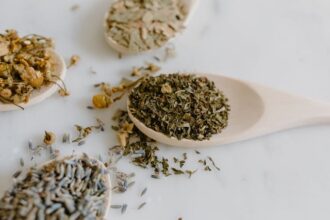Recent findings from the VITAL randomised controlled trial have highlighted the significant role vitamin D supplementation might play in preserving telomeres, those protective caps at the ends of our chromosomes that naturally shorten as we age. Published in The American Journal of Clinical Nutrition, the study draws upon a sub-study of VITAL, carried out by researchers at Mass General Brigham and the Medical College of Georgia. This work offers promising insights into vitamin D’s potential to slow a crucial pathway of biological ageing, adding to an expanding body of evidence suggesting that vitamin D might exert protective effects at the cellular level.
JoAnn Manson, MD, the principal investigator of VITAL and chief of the Division of Preventive Medicine at Brigham and Women’s Hospital, emphasised the groundbreaking nature of the findings. “VITAL is the first large-scale and long-term randomised trial to demonstrate that vitamin D supplements help protect telomeres and preserve their length,” she explained. The significance of this result is underscored by earlier research from VITAL, which had already identified vitamin D’s capacity to reduce inflammation and lower the risk of some chronic diseases associated with ageing, such as advanced cancer and autoimmune disorders. These findings collectively strengthen the notion that vitamin D supplementation could have far-reaching implications for healthy ageing.
To understand the importance of these findings, it’s worth noting that telomeres consist of repeating DNA sequences that act as buffers to protect our chromosomes from deterioration or harmful fusions. With each cell division, telomeres gradually shorten, and this shortening process is considered a hallmark of cellular ageing. Shortened telomeres have been linked to an increased risk of various age-related conditions, making them a focal point for research on strategies to extend health span. Although there had been a handful of smaller, short-term studies hinting at vitamin D’s potential to maintain telomere length, their results were often inconclusive, leaving the field with many unanswered questions.
VITAL, which stands for VITamin D and OmegA-3 TriaL, was meticulously designed as a randomised, double-blind, placebo-controlled study. It examined the effects of daily supplementation with vitamin D3 at 2,000 IU and omega 3 fatty acids at 1 gram in a cohort of American adults—women aged 55 and older and men aged 50 and older—over a five-year period. The VITAL Telomere sub-study involved 1,054 participants from this larger group, with telomere length measurements in white blood cells taken at the study’s start, year two, and year four. These robust methods ensured the data’s reliability and the findings’ significance.
Remarkably, compared to placebo participants, who received vitamin D3 supplements experienced significantly less telomere shortening over the four-year span. This effect was akin to preventing nearly three years of biological ageing compared to those on placebo. However, omega 3 fatty acid supplementation did not significantly impact telomere length over the study period. These results suggest that vitamin D, rather than omega 3 fatty acids, could play a unique role in preserving the structural integrity of our chromosomes, with implications for slowing down cellular ageing.
Commenting on these findings, Haidong Zhu, PhD, first author of the report and a molecular geneticist at the Medical College of Georgia, noted, “Our results suggest that targeted vitamin D supplementation may offer a promising strategy for slowing a biological ageing process, although further research is certainly warranted.” This tempered enthusiasm highlights the need for additional studies to confirm these results and determine how they might translate into tangible benefits for human health. Nevertheless, this new evidence provides a significant step forward in understanding how targeted nutritional interventions, such as vitamin D supplementation, could influence the biological processes that drive ageing and disease.
More information: JoAnn Manson et al, Vitamin D3 and marine ω-3 fatty acids supplementation and leukocyte telomere length: 4-year findings from the VITamin D and OmegA-3 TriaL (VITAL) randomized controlled trial, American Journal of Clinical Nutrition. DOI: 10.1016/j.ajcnut.2025.05.003
Journal information: American Journal of Clinical Nutrition Provided by Mass General Brigham








